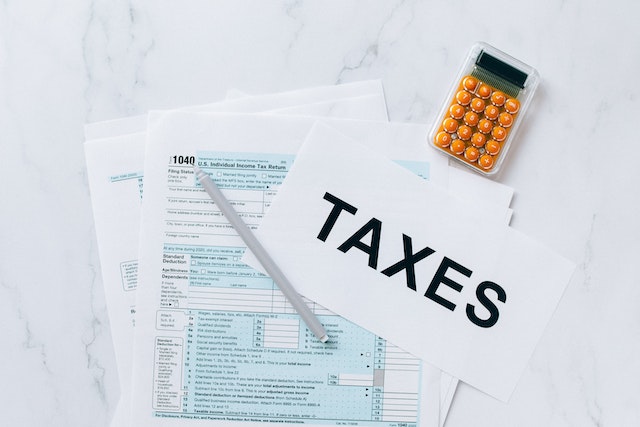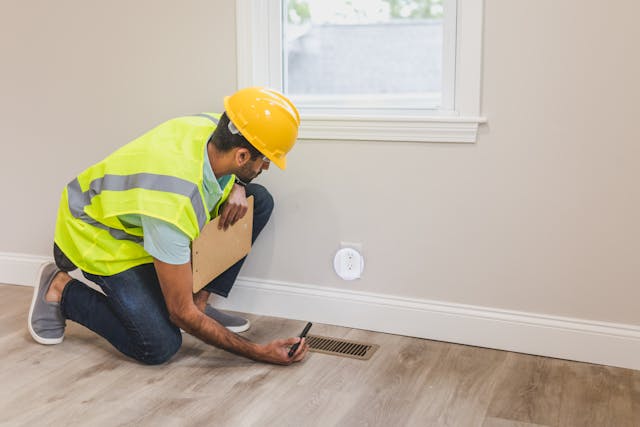- Depreciation is a powerful tax tool. It lets rental property owners deduct part of their property’s value each year, reducing taxable income and boosting overall returns.
- It’s not just about the building. Improvements like a new roof, appliances, or HVAC systems can also be depreciated over their own useful lives.
- Planning for the future matters. While depreciation offers great tax savings, it’s important to understand depreciation recapture when you sell so you can plan effectively.
- Good records make a big difference. Keeping track of costs and improvements helps ensure you get the full benefit of depreciation and avoid leaving money on the table.
Owning rental property can be a rewarding investment, offering steady income, long-term appreciation, and portfolio diversification. But beyond the obvious financial perks, there’s a powerful tax strategy that many real estate investors overlook or underuse: rental property depreciation.
At Brentwood Square Management, we help property owners understand how to make the most of their investments, and one of the most valuable tools at their disposal, depreciation. In this article, we’ll break down what rental property depreciation is, how it works, why it matters, and how investors and owners can benefit from it.
What Is Rental Property Depreciation?
Rental property depreciation is the process of deducting the cost of a property over its useful life for tax purposes. While the market value of a property may increase over time, the IRS allows owners to deduct a portion of the property’s value each year as though it is gradually wearing out or losing value due to age, wear, and tear.
This annual deduction reduces taxable rental income, ultimately lowering the amount of taxes you owe. It’s important to note that not every part of a property is depreciable. The value of the land itself is excluded, so only the building and certain improvements qualify.

Residential rental properties are typically depreciated over a 27.5-year schedule, while commercial rental properties are depreciated over 39 years, using the straight-line method.
How Does Depreciation Work?
To calculate depreciation, you first need to determine the property’s basis, which usually consists of the purchase price plus certain closing costs, minus the value of the land. For example, if you purchase a rental property for $300,000 and the land is valued at $50,000, the depreciable basis would be $250,000.
Under the straight-line depreciation method for residential rentals, this means you can deduct roughly $9,090 per year ($250,000 divided by 27.5 years). This annual deduction is applied against your rental income, which lowers your taxable income for the year. Over time, these deductions can provide significant tax savings and improve your overall investment returns.
What Can Be Depreciated?
Depreciation isn’t limited to just the main structure of the property. Improvements and additions made after the purchase, such as a new roof, updated HVAC system, water heater, appliances included with the rental, driveways, or fencing, can also be depreciated.
These additions are generally depreciated over their own useful life, which may differ from the 27.5-year schedule used for the building. However, it’s important to distinguish between improvements and repairs.

Routine maintenance and minor repai,rs like fixing a leaky faucet or repainting a room, are not depreciable. Instead, these costs are typically deducted as expenses in the year they occur.
Who Can Claim Depreciation?
Anyone who owns a rental property that generates income can claim depreciation. This includes individual investors, partnerships, LLCs, and corporations. The key requirement is that the property is available for rent, meaning it’s ready and able to generate income even if it’s not currently occupied.
If the owner uses the property personally for part of the year, depreciation must be prorated based on the time the property was used as a rental.
Why Depreciation Matters to Investors
The financial benefits of depreciation are significant for rental property owners. One of the most direct advantages is that it reduces your taxable income. By lowering the amount of income you report, you may fall into a lower tax bracket or reduce your overall tax bill.
This leads to improved cash flow, giving you more income to reinvest into property improvements, pay down mortgages, or expand your portfolio. Depreciation also plays a role in long-term planning. It helps offset the costs of ownership, such as mortgage interest, insurance, and maintenance, making it easier to forecast financial performance and plan future investments.
Want help navigating your property’s financial strategy? Reach out to our team for personalized support.
Depreciation Recapture: What to Know When Selling
While depreciation offers clear tax advantages during the period of ownership, there is an important consideration when it comes time to sell the property: depreciation recapture. This refers to the process where the IRS collects taxes on the depreciation deductions you claimed when you sell the property for a gain.

For example, if you purchased a property for $300,000, claimed $100,000 in depreciation, and later sold it for $400,000, the IRS would recapture the depreciation at a tax rate of up to 25%, in addition to any capital gains taxes on the sale profit.
This doesn’t mean owners should avoid claiming depreciation; in fact, it’s generally unwise to skip it because the IRS assumes depreciation has been taken, whether or not you claimed it. Instead, it’s about understanding and planning for these taxes ahead of a sale.
How to Maximize Your Depreciation Benefits
To get the most out of depreciation, owners should keep thorough records of their purchase costs, improvements, and capital expenditures. Documentation is key to ensuring that every eligible dollar is properly accounted for.
For larger properties, some owners may benefit from a cost segregation study. This process breaks down a property into individual components, such as fixtures, landscaping, or systems, which can often be depreciated over shorter timelines of 5, 7, or 15 years. Accelerating these deductions can improve cash flow and increase the near-term financial benefit of depreciation.
Learn more about how we help property owners like you manage and grow their investments.
Common Misconceptions
There are a few misconceptions that often circulate among rental property owners. One common misunderstanding is that if the property is increasing in market value, it can’t be depreciated. Depreciation is tied to the useful life of the physical structure, not its market price.

Another misconception is that skipping depreciation will help avoid recapture taxes at sale. In reality, the IRS will still calculate depreciation recapture based on the amount that should have been claimed, regardless of whether you actually took the deductions.
Final Thoughts
Understanding rental property depreciation is one of the smartest ways investors can improve their financial outcomes. With the right approach, it reduces tax liabilities, improves cash flow, and strengthens the long-term health of your real estate investments.
Brentwood Square Management is here to help you not only manage your properties smoothly but also navigate the financial strategies that can set you up for lasting success. Ready to maximize your rental property’s potential? Contact Brentwood Square Management today and let us help you make the most of every advantage available to you as a property owner.
